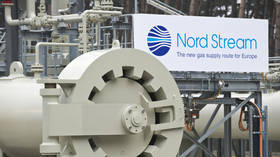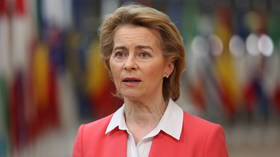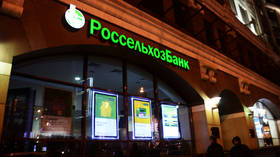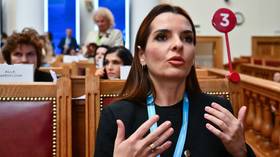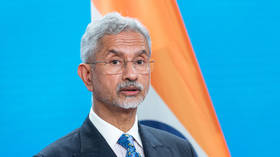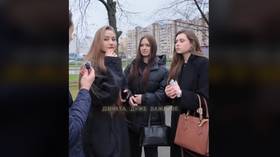EU members agree to gas rationing – DPA
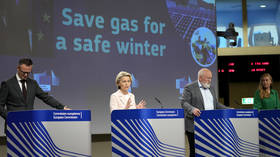
EU nations have found common ground on a controversial scheme to reduce gas usage in preparation for a possible complete stoppage of supplies from Russia, diplomats have told German state news agency DPA.
Some members – led by Hungary and Greece – have expressed strong objections to the proposal.
With the level of reliance on Russia gas varying between member states, the proposal by the European Commission had been met with criticism from many governments within the EU.
The emergency plan will see member states voluntarily reduce their consumption of natural gas by 15% between August 2022 and the end of March 2023, the sources said.
The hope is that the measure will help “to soften the impact of a potential total stoppage in Russian gas supplies,” according to DPA.
The plan will likely be approved during a summit of EU energy ministers in Brussels later on Tuesday, the diplomats said.
As she arrived for the meeting in the Belgian capital, European Union energy policy chief Kadri Simson said she expected the ministers to reach a deal on gas rationing.
She argued that Russian gas giant Gazprom’s announcement that gas supply to the EU would be cut further this week due to the need to fix a turbine on the Nord Stream 1 pipeline was “politically motivated.”
“We know that there is no technical reason to do so... And exactly for that reason, the pre-emptive reduction of our gas demand is a wise strategy,” Simson insisted.
The so-called “Save Gas for a Safe Winter” proposal had been proposed by the European Commission a week ago. It urged all EU member states to lower their gas consumption by 15% by switching to renewable energy or even coal, oil and nuclear power, as well as by instructing their citizens to ration their use of energy.
The idea caused a lot of protests within the bloc, especially in southern Europe. The Spanish minister for ecological transition insisted the plan was “not necessarily the most effective nor the most efficient nor the most just,” while the Portuguese secretary of state for environment and energy slammed it as “unsustainable” and “disproportionate.”
France, Greece, Italy, Hungary, Denmark, Ireland, Malta, the Netherlands and Poland were also among the countries that spoke out against the cuts.
European Commission President Ursula von der Leyen defended the plan again on Monday, insisting the bloc “must be prepared for the worst-case scenario: a complete halt to gas supplies, sooner or later.”
In an interview with DPA, she described Moscow as “not a reliable partner for Europe’s energy supply,” claiming that “Gazprom has deliberately kept its storage levels low.” The company had reduced or cut off supply to 12 EU member states, von der Leyen added.
Von Der Leyen expressed confidence that the EU energy ministers would support the plan, as they “understand their responsibility” to see Europe safely through the winter.
Last week, Russian President Vladimir Putin rejected claims that gas supplies could be cut off to the EU completely. Despite tensions in relations between Moscow and Brussels over Russia’s military operation in Ukraine, Gazprom was “ready to pump as much as necessary,” but it was the EU that “closed everything themselves,” he argued.
